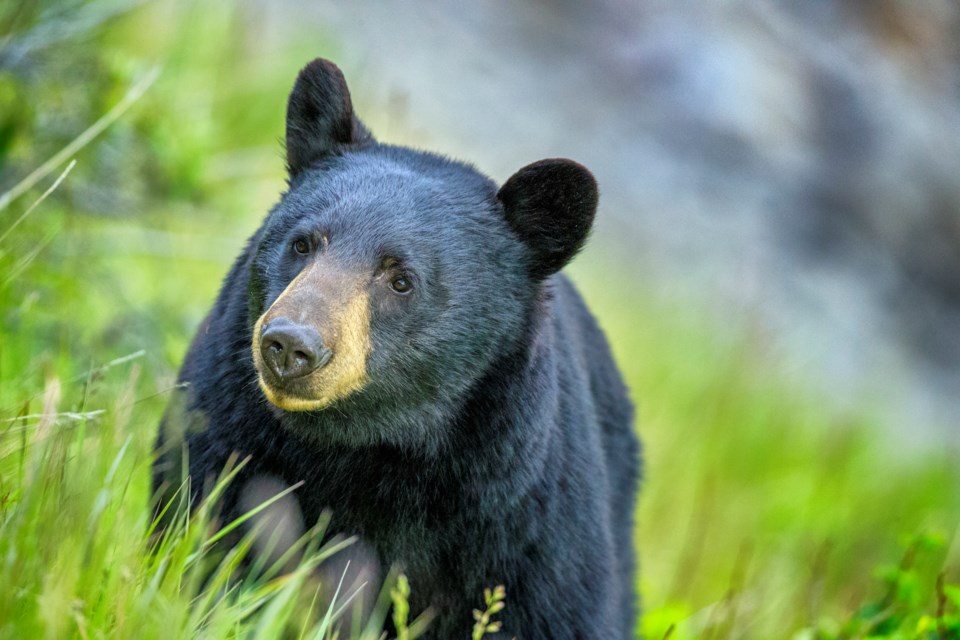Another day, another hungry bear looking for food in Squamish.
On Monday, the Conservation Officer Service (COS) received a report of a black bear accessing an unlocked vehicle on Bailey Street and gaining a food reward.
A spokesperson for the COS said the incident was reported early in the morning before 5 a.m. in the Dentville area.
“The bear opened the door that was left unlocked, pulled out some food from the vehicle and remained in the area while it ate the food,” the spokesperson told The Squamish Chief.
While it is hard to imagine a bear opening a car door like a human, it turns out that is exactly what happens when a vehicle is left unlocked.
“Bears are very intelligent and surprisingly dexterous animals that are capable of opening car doors using the door handles just like us,” the spokesperson said.
“Bears are also very strong and can pry open windows if the person had left a small crack in the window for ventilation.”
Bear stats
According to the COS, fewer reports of human-wildlife conflicts with black bears have come in this year compared to previous years, but the stats show they are on the prowl for an easy meal.
“This year, we have received multiple reports of black bears accessing unattended food and other wildlife attractants in picnic sites, campgrounds and climbing areas,” the spokesperson said.
This year, to date, there have been 177 human-wildlife conflict reports; 79 of those were for food-conditioned bears.
At the same time last year, those numbers were 237 and 119, respectively.
“A food-conditioned bear refers to bears that have learned to associate people with access to non-natural food (or the smell of people), human activities, human-use areas, or food storage receptacles,” the spokesperson said.
“Non-natural food materials include things like garbage, pet food, livestock feed, bird feed, composts, barbecue, human food, petroleum products and other odorous products that have attracted a bear not including fruit trees, crops or gardens.”
Bear vs. cars
The general advice the COS is offering locals is to not leave anything with a scent in a vehicle as it can and will attract a bear.
“It is important to remove all wildlife attractants from your vehicle. Wildlife attractants can include food scraps, dirty drink containers, trash, gum, air freshener, sunscreen and scented toiletries,” the said.
“It is also important to keep all doors locked and have all the windows up completely if the vehicle is going to be left unsupervised. Keep the surroundings and the interior of your vehicle as clean as possible at all times.”
For van-lifers in Squamish, the COS suggests storing all food and scented products in airtight containers to reduce the amount of smell in the vehicle.
“Bears have a great sense of smell and can remember locations, so once they have gained access to a food reward, they are most likely to return,” the agency said.
Recent activity
On Aug. 8, the District of Squamish temporarily closed the area in the vicinity of the playground and picnic area at the end of Smoke Bluffs Road due to the presence of a food-conditioned black bear.
“The Conservation Officer Service continues to urge the public to be aware and take extra precautions when using the Smoke Bluff trails,” reads a District of Squamish social media post.
“All visitors to parks in the District are required to securely store all attractants—DO NOT leave backpacks in open spaces unattended. Store all food and scented items in a vehicle, hard-sided trailer, or bear-proof locker,” the post said.
The closure is in effect until further notice.
For more information on bear safety, visit the WildSafeBC website.



